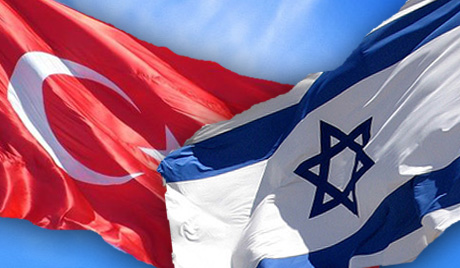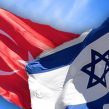
Turkey Refuses to Stop Second Mavi Marmara
Publication: Eurasia Daily Monitor Volume: 8 Issue: 97
By:

The Turkish-Israeli relationship has been in a limbo since the deadly Mavi Marmara incident in late May 2010, and various efforts to bridge the differences have failed (EDM, July 7, December 10, 2010). The approaching anniversary of the flotilla incident has reignited the debate on the future of Turkish-Israeli relations. Representatives of international advocacy groups, including the Turkey-based Foundation for Human Rights and Freedoms and Humanitarian Relief (IHH), are planning to hold the Freedom Flotilla II to shed light on Israel’s blockade over Gaza. Around fifteen ships from various nations are expected to take part in the flotilla, to which over 10,000 volunteered to join. As the Middle East experiences troubled times, however, concerns have grown that this development might escalate the tensions. In a recent meeting, the flotilla organizers reiterated their determination to go ahead with their plans, though they indicated that they might postpone it until late June in order to avoid the intermingling of this campaign with the upcoming Turkish elections, slated for June 12 (Cihan, April 11).
There has been rising concern in the United States over how the “second Mavi Marmara crisis” might unfold. Thirty six members of Congress sent a letter to Prime Minister Recep Tayyip Erdogan requesting that he prevent the second convoy and dampen the tensions. The members of the House, including both Turkey sympathizers and critics, expressed their deep concern over the developments and called on Erdogan to develop positive relationship with Israel. They also underlined Israel’s right to defend itself and argued that Israel would be forced to board the ships and search for weapons if a second flotilla sails to Gaza, raising the risk of another crisis (Sabah, May 13).
In an interesting development amidst these reports, Turkish media speculated that the Israeli Ambassador to Turkey, Gaby Levy, paid a visit to the Turkish foreign ministry to relay Israel’s concerns and prevent a second Mavi Marmara crisis. Reportedly, he told Turkish diplomats that “the new flotilla is also [organized] for provocative purposes. If a similar situation emerges again, there will not be violent actions as in the Mavi Marmara. But, be assured, all that is necessary will be undertaken [by Israel].” Those words were interpreted in the Turkish media as akin to veiled threats (Haberturk, May 14).
Turkish diplomatic sources reportedly maintained the position that Turkey officially cannot stop the convoy. Although Ankara could advise the organizers to cancel their plans, it would not be able to tell a civilian initiative not to go to Gaza. Moreover, according to some sources, intervening now might undermine Turkey’s position, as it would raise the question as to why Turkey had not stopped the first flotilla (www.cnnturk.com, May 16).
The low attendance to the reception at the Israeli embassy in Ankara commemorating the foundation of the State of Israel was yet another occasion highlighting the ongoing tensions. While no member of the cabinet was present at the reception on May 16, foreign ministry officials and the Turkish military were represented at lower levels. Similarly, opposition parties did not have significant representation at the reception. The low interest in the event was interpreted in the media as the Turkish government’s boycott of Israel (Sabah, May 17).
Meanwhile, there has been speculation that Turkey was threatening to withdraw from a UN panel investigating Israel’s attack on Mavi Marmara. The Palmer Commission, set up by the UN Human Rights Council in June 2010, was expected to present its report to UN Secretary-General Ban-ki Moon by mid May. Turkey’s objections to certain sections of the draft report, however, and the draft’s failure to name Israel’s actions in international waters as a violation of international law reportedly angered Turkey. While the announcement of the panel’s conclusions has been delayed, the Turkish media even maintained that Turkey threatened to withdraw from the panel if the final report appears to be favoring an Israeli point of view (www.cnnturk.com, May 16).
In a live TV appearance evaluating Turkish foreign policy, Foreign Minister Ahmet Davutoglu also commented on these various issues on the bilateral agenda. Davutoglu presented a different interpretation to the picture that has emerged in the Turkish media (Hurriyet Daily News, Anadolu Ajansi, May 17). Regarding the press reports that Levy issued a warning to Turkish foreign ministry to stop the organization of the second flotilla, Davutoglu contended that it was out of the question. On the contrary, Davutoglu maintained that Turkey summoned Levy in order to send serious warnings to Israel and convey Ankara’s expectation so that last year’s bitter experience would not be repeated. Davutoglu also criticized those who call on the Turkish government to stop the second flotilla, arguing that telling a civil society organization what to do would be an undemocratic approach.
Davutoglu acknowledged Turkish dissatisfaction with the content of the draft report prepared by the UN fact finding mission, but rebuffed claims that Turkey would withdraw from the panel. Nonetheless, he added that Ankara’s response will be strong, if the final report contains elements that contradict the initial report last year, which was more favorable to the Turkish position. Last year’s report appeared to describe Israel’s actions in Gaza and the raid against Mavi Marmara as incompatible with international law. Regarding the delays in the presentation of the report’s findings, Davutoglu also put the responsibility on Israel, arguing that Israel delayed submitting its report to the UN panel.
Davutoglu also sought to make the case that the task of the UN mission is not to reconcile Turkey and Israel, but “to serve justice.” “Why were nine civilians killed? Who dares to kill civilians in international waters? We want this to be described. We do not want a mediator with Israel,” Davutoglu added.
Although Egypt now allows for the flow of humanitarian aid to Gaza following the fall of Mubarak, the organizers of the Freedom Flotilla remain determined to press ahead with their plans for a second convoy, largely to publicize their position worldwide. Also, Davutoglu’s comments indicate that Turkey remains determined to seek retribution for Israel’s deadly raid. Moreover, Turkey wants Israel’s acknowledgement of its responsibility and the issuing of an official apology. It may be too early to expect an improvement in the Turkish-Israeli relationship any time soon.




